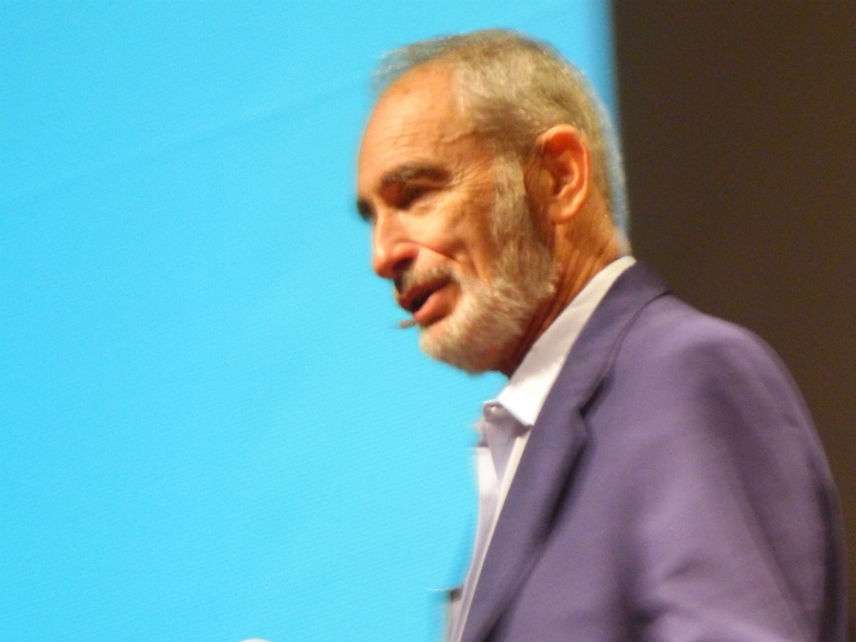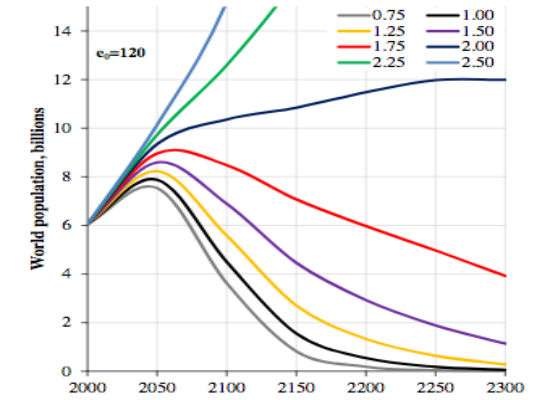Civilization Is Doomed, Says Stanford Biologist Paul Ehrlich (Again)
Half a century after The Population Bomb, Ehrlich still thinks global catastrophe is just around the corner.

"The battle to feed all of humanity is over," Paul Ehrlich declared in the prologue to his 1968 book The Population Bomb. "In the 1970's the world will undergo famines—hundreds of millions of people are going to starve to death in spite of any crash programs embarked upon now. At this late date nothing can prevent a substantial increase in the world death rate." Still, he said, "We must have population control at home, hopefully through a system of incentives and penalties, but by compulsion if voluntary methods fail."
Half a century later, Ehrlich is still at it, notwithstanding the spectacular failure of his prior prophecies. "Collapse of civilization is a near certainty within decades," says the headline over a new Guardian article featuring Ehrlich's latest predictions. Ehrlich tells the paper "population growth, along with over-consumption per capita, is driving civilisation over the edge: billions of people are now hungry or micronutrient malnourished, and climate disruption is killing people."
According to The Guardian, Ehrlich concedes that "many details and timings of events" in The Population Bomb "were wrong," but "he says the book was correct overall." Hardly.
While far too many people did die of malnutrition in the decades following the 1970s, massive famines in which hundreds of millions starved to death did not occur. The world death rate fell from 12.5 per 1,000 people in 1968 to 7.6 people per 1,000 in 2015. The world's total fertility rate declined from about 5 children in 1968 to less than 2.5 children per woman now, largely without coercive population control measures (with the notable exception of China).
According to The Guardian, Ehrlich thinks "the world's optimum population is less than two billion people—5.6 billion fewer than on the planet today." As it happens, human population, will likely peak later in this century and begin falling, perhaps to as low as 2 billion by 2150, according to projections by demographer Wolfgang Lutz and his colleagues at Oxford University and the International Institute for Applied Systems Analysis.
In one scenario, Lutz et al. assumed human life expectancy would rise to 120 years, from around 70 now. They reported:
A global move to the fertility levels seen in a number of Chinese urban centres (around 0.75) over the coming 40 years would result in a peaking of global population before 2050 and a decline to only 3.6 billion in 2100 and 150 million people by 2200. But even the more realistic range of long term fertility levels of 1.5-1.75 (higher than it has been in much of Europe for the past decades) would lead to declines in global population size of 2.6-5.6 billion by 2200 and even 0.9-3.2 billion by 2300. Therefore, even under conditions of further substantial increases in life expectancy, world population size would decline significantly if the world, in the longer run, followed the examples of Europe and East Asia.

Unlike his dire predictions in The Population Bomb, Ehrlich cannily does not specify in which upcoming decade civilization will finally collapse. Unless effective rejuvenation treatments kick in soon, the 85-year-old Ehrlich won't be around for me (and younger folks) to mock when his prophecies of doom fail yet again.


Show Comments (39)